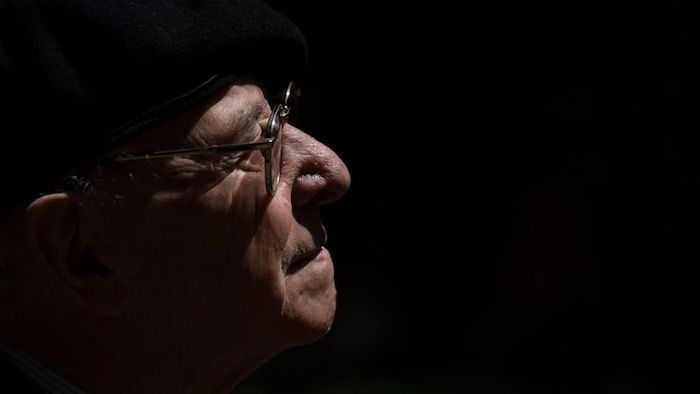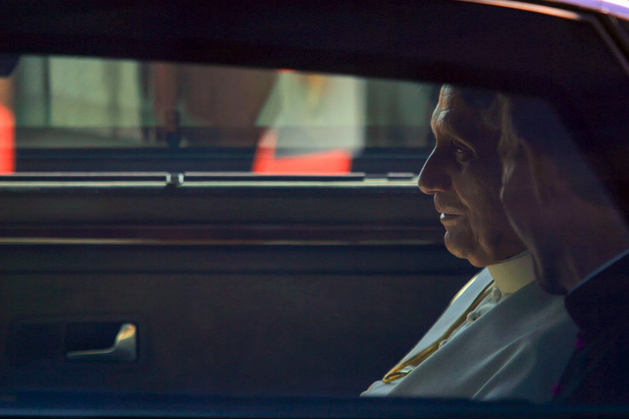It has been 25 years since a Connecticut newspaper exposed one of the Catholic Church’s biggest sexual abuse scandals

By NICOLE WINFIELD
A Connecticut newspaper exposed one of the Catholic Church’s biggest sexual abuse scandals by reporting 25 years ago Wednesday that eight men had accused the revered founder of the Legion of Christ religious order of raping and molesting them when they were boys preparing for the priesthood.
It took a decade for the Vatican to sanction the founder, the Rev. Marcial Maciel, and another decade for the Legion to admit he was a serial pedophile who had violated at least 60 boys. In the meantime, the original whistleblowers suffered a defamation campaign by the Legion, which branded them liars bent on creating a conspiracy to hurt a man considered a living saint.
As they marked the quarter-century anniversary of revelations that tarnished the legacy of St. John Paul II, three of Maciel’s victims are still seeking reparations from the Legion to compensate for the abuse they suffered and the “moral” harm done to their reputations by the order.
They had refused earlier compensation offers that their fellow survivors accepted, and a mediation process begun in 2019 has stalled, according to emails and documents provided to The Associated Press.
The Vatican in 2010 took over the Mexico-based Legion and imposed a process of reform after an investigation showed that Maciel had sexually abused seminarians and fathered at least three children with two women. The Vatican found he had created a system of power built on silence, deceit and obedience that enabled him lead a double life.
The findings were by no means news to the Holy See: Documents from Vatican archives show how a succession of popes, cardinals and bishops starting in the 1950s simply turned a blind eye to credible reports that Maciel was a con artist, drug addict, pedophile and religious fraud. The Vatican and especially John Paul, however, appreciated his ability to bring in vocations and donations.
The reality of Maciel’s depravity burst into the public domain Feb. 23, 1997, when The Hartford Courant published a lengthy expose by investigative journalists Jason Berry and the late Gerald Renner about Maciel and the order, whose U.S. headquarters were based in Connecticut.
The story, which formed the basis of a 2004 book “Vows of Silence,” quoted several victims by name who independently reported that Maciel would bring them into his bedroom at night, and under the pretense of abdominal pain, induce them to masterbate him.
“When The Courant ran the long investigative piece Renner and I did on Maciel, we thought Pope John Paul II would see the light and punish Maciel,” Berry told the AP in an email. He noted that other mainstream media only began reporting on clergy sexual abuse after the Boston Globe’s “Spotlight” revelations in 2002. “By then, John Paul’s blind faith in Maciel was a cover-up by any other term, and lasted till his death.”
A year after the original Courant story, in 1998, the victims filed a formal canonical complaint against Maciel with the Vatican’s Congregation for the Doctrine of the Faith, where the case languished until after John Paul died. Maciel was sentenced in 2006 to a lifetime of “penance and prayer,” and he died in 2008, still considered a saint by the Legion.
Following the Vatican-mandated reform process, the Legion apologized and tried to make amends, even as it has been forced to confront revelations of a new generation of abusers within its ranks — some of them Maciel’s original victims — and the superiors who covered up for the crimes, some of whom remain in power.
In 2020, the Legion publicly retracted the “negative institutional and personal judgments about the character and motivations of the people who made legitimate and necessary accusations” in the original Courant expose. Naming the original victims, it said “Today we recognize as prophetic their accusations in favor of truth and justice.”
But Jose Barba, one of the most vocal of the original eight survivors, wants the Legion to formally retract what he calls the “lies” the order provided to the Courant to discredit him and the other victims. They include what he says were a falsified letter from a Chilean bishop who had investigated Maciel in the 1950s, and false statements from four Mexicans who claimed the victims had tried to enlist them in a conspiracy against Maciel.
Barba, who says he represents fellow survivors Arturo Jurado and Jose Antonio Perez Olvera, drafted a proposed letter to the Courant and the Vatican newspaper that he wanted the Legion to submit to retract the claims. But then Legion superior, the Rev. Eduardo Robles-Gil, refused during a December 2019 mediation meeting in Mexico City, Barba said.
In a Jan. 4, 2020 summary of that meeting, Barba said the Legion’s initial calculus of a low five-figure settlement offer for each of the three remaining victims was a “humiliation,” and he proposed a team of five arbitration experts to determine a more “just” reparation.
Robles-Gil signed the summary but wrote: “I receive this without accepting the process that is asked for and it remains at our consideration to accept it or not.”
The Legion’s new superior, the Rev. John Connor, tried unsuccessfully to engage with Barba after his February 2020 election, sending two letters that went unanswered until Barba emailed him on Jan. 5, 2021, seeking to restart negotiations.
Connor assured him he wanted to “find ways to contribute to heal and close the painful events of the history of our congregation.” But in an email, Connor said Barba’s proposal for five arbitration experts wouldn’t help “in finding a shared resolution.”
Barba never replied. “I don’t trust them because it’s not in good faith,” he told the AP.
In a statement to the AP, Legion spokesman the Rev. Aaron Smith noted that the order had reached settlements with most of the historic victims and hoped for a resolution with the remaining ones.
“We are sad that meeting still has not happened, especially considering the positive experience of the encounters with other victims of Fr. Maciel,” Smith said in a statement. “We continue to remain hopeful it will take place in the near future permitting open dialogue with him.”
Barba, meanwhile, says he is getting old and his two confreres are ailing. While they are hailed by ex-Legionaries as “los 8 Magnificos” (the Magnificent Eight) for having stood up to Maciel and the order, Barba recalls a Nov. 8, 1997 letter he and the others wrote to John Paul, translated into Polish, asking for the pope to hear their pain and do something.
“It appears inconceivable to us, Holy Father, that our grave revelations and complaints mattered absolutely nothing to you,” they wrote, according to a copy of the letter provided to the AP. “We want the church and society to understand that all we want is justice: not only for legitimate personal vindication, but for the good of the church and society.”
Complete Article ↪HERE↩!




